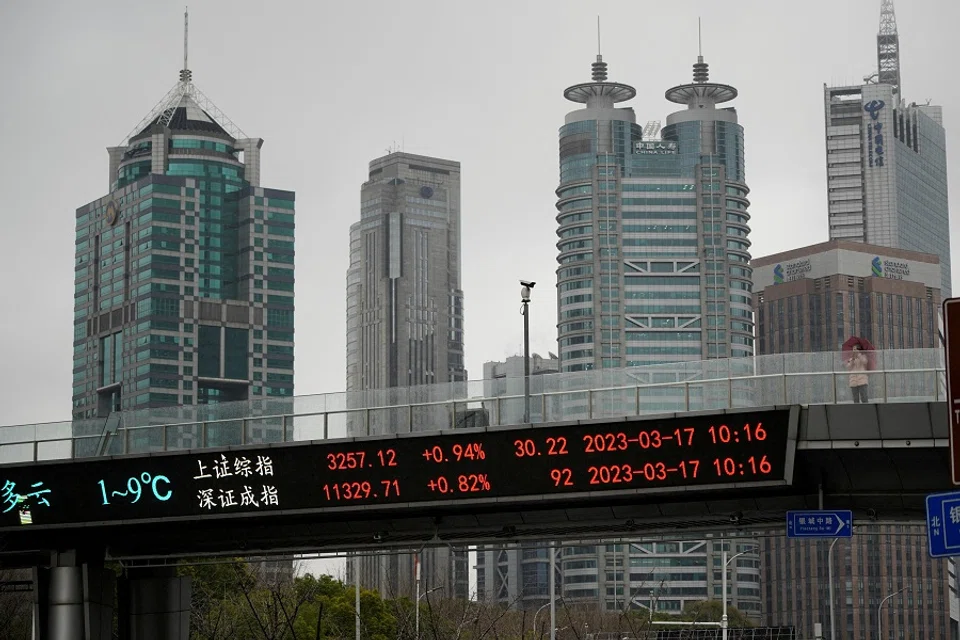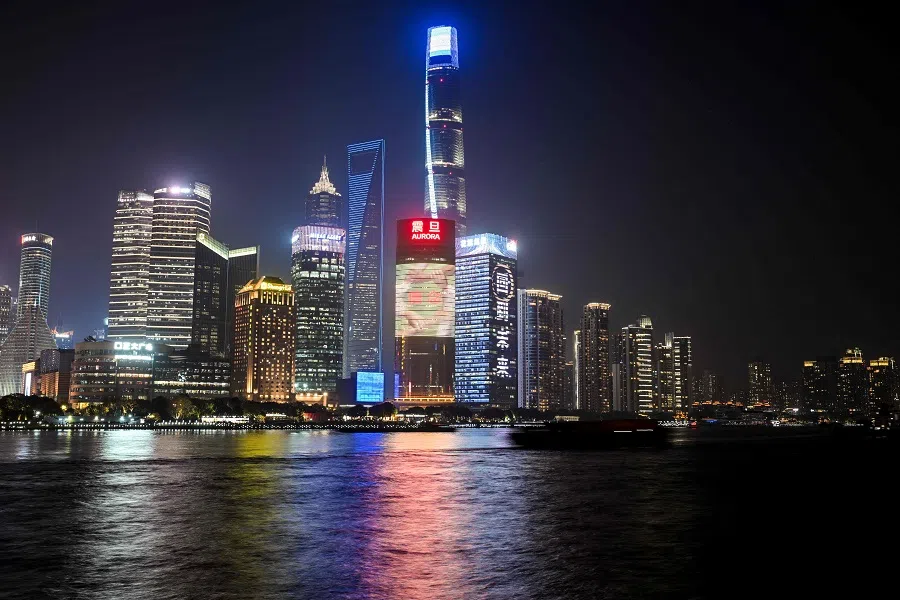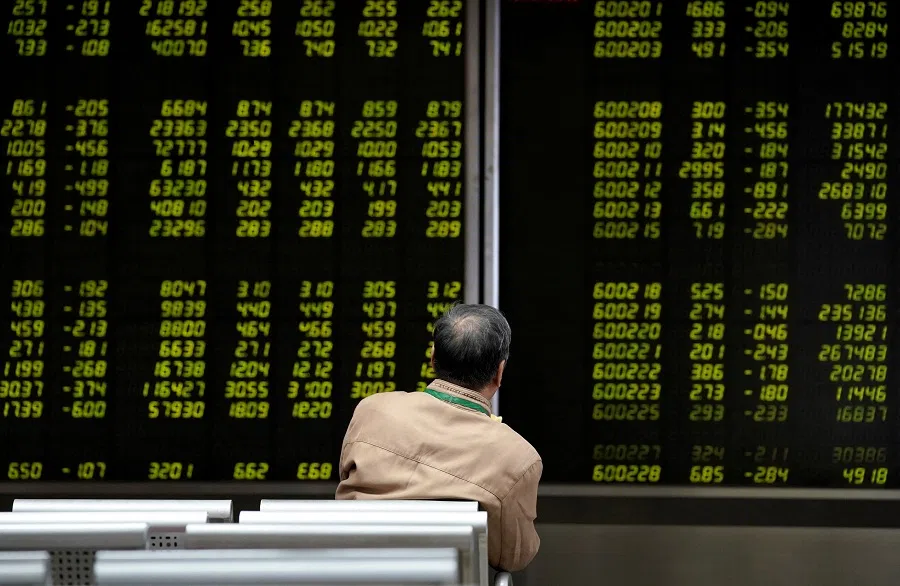Can public opinion boost China's economy?
Lianhe Zaobao correspondent Yang Danxu looks at the outcomes of the Central Economic Work Conference held earlier this week, in particular the call to highlight China's economic prospects. Amid a still-struggling economy, high-level officials are pulling all the stops to boost the public's confidence in economic recovery.

As the end of the year nears, the annual Central Economic Work Conference (CEWC) of the Chinese Communist Party took place from 11 to 12 December in Beijing, analysing the current economic trends and laying plans for next year's economic work.
Avoiding pangs of sudden transformation
A year has passed since the 20th National Congress was held and since China came out of the pandemic. Looking back at the start of the year, although China suffered from a surging wave of the pandemic after haphazardly loosening restrictions, many still breathed a sigh of relief as they looked forward to the economy picking up after enduring the tough pandemic.
However, China's economy in the past year did not rebound as strongly as predicted by external observers. Various macroeconomic data fell below expectations, especially in the second half of the year. There was a lack of confidence from businesses, market vitality was weaker, consumers tightened their purse strings, and external observers were pessimistic about China's economic prospects.
Against such a backdrop, China's upper echelon held a Politburo meeting last week, with a key aspect of the meeting being the study and analysis of economic work for 2024. This was followed up by the CEWC this week, which laid the groundwork for macroeconomic policies next year.
... the higher-ups want to undertake structural adjustments in an even more stable and orderly manner under the present economic environment, in order to avoid the pangs caused by a sudden transformation.
The CEWC gave an objective overview of the issues and challenges currently faced by China's economy, including the lack of effective demand, overcapacity in some sectors, lacklustre social expectations, numerous hidden risks, domestic circulation bottlenecks, as well as rising complexity, severity and uncertainty of the external environment.

The meeting also proposed a general tone for next year's economic policies, that is to persist in "seeking progress while maintaining stability, promoting stability through advancement, and establishing the new before abolishing the old".
Although this is not the first time "establishing the new before abolishing the old" (先立后破) was proposed in a high-level meeting, its emphasis at the end of the year is a sign that the higher-ups want to undertake structural adjustments in an even more stable and orderly manner under the present economic environment, in order to avoid the pangs caused by a sudden transformation.
Stepping in to control public opinion
The Politburo meeting last week as well as the two-day CEWC raised a new directional requirement, which is to "enhance the consistency of macroeconomic policy orientation".
According to a report by Chinese state media Xinhua, this would encompass two facets. One, strengthening overall coordination across various policies, and including non-economic policies in the assessment of macroeconomic policy consistency to ensure that the policies form synergy. This is believed to help prevent the clashing of policies between the different political branches. Two, strengthening "publicity and public opinion guidance on economic affairs".
The Xinhua report stated that the CEWC also made specific proposals to guide public opinion to work hand in hand with economic work, asking to "highlight the bright future that is China's economy" (唱响中国经济光明论). This is believed to be the first time Chinese state media have reported that the upper echelons made such a clear request for publicity and public opinion guidance during a meeting on economic work.
... Chinese officials have long guided Chinese media to report positively about China, but more so for topics such as political and diplomatic issues, while discussions around economic issues were relatively on a loose rein in the past.

Indeed, it is a tad jarring to lump "highlighting the bright future that is China's economy" together with fiscal and monetary policies among other traditional economic tools during an annual economic work conference. This shows that the officials now see guiding public opinion to frame a positive outlook of China's economy as a necessary move in spurring the economy, and that Beijing is deeply concerned about the lack of confidence in the market and is striving to change the current situation of low expectations by swaying public opinion.
In fact, Chinese officials have long guided Chinese media to report positively about China, but more so for topics such as political and diplomatic issues, while discussions around economic issues were relatively on a loose rein in the past. However, signs that the officials have been stepping up on interference of negative comments about China's economy have become more apparent in the recent months.
Following Hong Hao and Wu Xiaobo, it was recently revealed that Liu Jipeng, a finance academic that frequently commented on China's stock market, has been banned from social media. According to reports, this financial "Big V" (大V, verified internet personality) had recently lambasted China's stock market.
Practical measures to boost confidence
Officials' concern that current public opinion is detrimental to the stabilisation of confidence in the economy is somewhat justified. Since the second half of this year, several negative viewpoints of China have cropped up, such as "the Japanification of China's economy" and "China's rise has hit a ceiling".
Such sentiments reflect the pessimistic outlook of China's economic prospects from external observers. From Beijing's perspective, as the naysayers get increasingly louder, it would further intensify negative sentiments, and eventually become a self-fulfilling prophecy. Thus, there is even more of a need to have a hold in guiding public opinion, and "highlighting the bright future that is China's economy" naturally became viewed as one measure of economic policy.
In fact, the naysaying of China's economy is not done objectively - China's large market still possesses huge potential, and the current economy still has some bright spots.

A reason for the low expectations currently is because policies are oftentimes a step behind expectations, creating a situation of "pressure from public opinion". If there is pressure from public opinion, the officials would appear even more passive when policy effects are not immediately felt. This in turn affects market sentiment and causes the Chinese public and international investors to lose confidence in China.
If these measures announced by the higher-ups and delineated in official documents can be properly implemented, there is still a very large potential that China's economy can tap on to build a solid foundation to build confidence.
How then can confidence be boosted? Just by relying on the officials to "highlight the bright future that is China's economy" is perhaps not enough.
The ease of getting employed, whether salaries increase, whether stores enjoy good business, whether factories get more orders, each micro market in domestic China and all who have business dealings with China have a personal sense of things. Regardless of how grandiose a manner in which the Chinese economy's bright future is brought to the forefront, it would not change how each man on the street or each business feels from their own direct, personal experience.
In fact, there are still many options the officials can pick from their policy toolkit. The CEWC proposed expanding domestic demand, deepening reforms in key areas, expanding high-standard opening up, and more. If these measures announced by the higher-ups and delineated in official documents can be properly implemented, there is still a very large potential that China's economy can tap on to build a solid foundation to boost confidence.
Such an actual support to the economy would certainly have a far greater impact than any rallying call to "highlight the bright future that is China's economy".
This article was first published in Lianhe Zaobao as "提振中国经济靠舆论?".



![[Big read] When the Arctic opens, what happens to Singapore?](https://cassette.sphdigital.com.sg/image/thinkchina/da65edebca34645c711c55e83e9877109b3c53847ebb1305573974651df1d13a)
![[Video] George Yeo: America’s deep pain — and why China won’t colonise](https://cassette.sphdigital.com.sg/image/thinkchina/15083e45d96c12390bdea6af2daf19fd9fcd875aa44a0f92796f34e3dad561cc)
